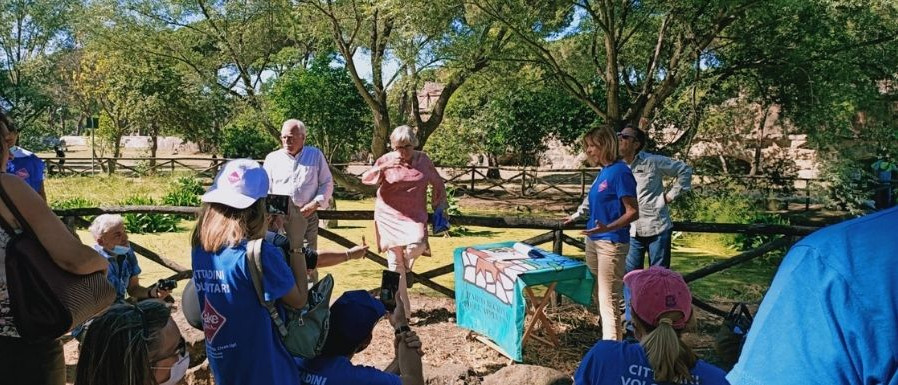During the previous weeks, our colleague Eva met Gregorio Arena, Professor of Administrative Law at the University of Trento from 1985 to 2015, and President of Labsus – Laboratorio per la Sussidiarietà. Guided by his words we will get to know more about this initiative, and we will understand together how our realities are complementary in their activities. But let’s start from the birth of Labsus itself.
Labsus’ activity officially started in December 2005, but it really began on 11 May 2006 with the presentation of the website www.labsus.it, an online magazine promoted by the Laboratory for Subsidiarity, ‘a cultural association founded on the idea that the principle of subsidiarity could radically change the relationship between citizens and institutions‘, as the Professor began. It seems a long time ago, but as we will see, the association’s activities and commitment have been growing ever since, and have now reached a number of different Italian realities. The launch of the website is a key point in this story and in the history of Labsus itself, since it contains, in a specific section, ‘all the experiences of active citizenship that [we] knew about. The turning point,” continues the Professor, “was eight years later, in 2014, with the presentation of the first Regulation for the Shared Administration of Common Goods“, an important milestone for the association that has made the motto ‘Act locally, think globally’ one of its principles.
“Imagining that in Europe one day there will be hundreds of thousands of citizens taking care of their villages and neighbourhoods is certainly a very ambitious project, but surely a beautiful project!”
How can this be put into practice? How can we approach local authorities and citizens in order to involve them, allowing them to become active participants in promoting change? The key to this is subsidiarity and what comes with it. Since 2001, the principle of subsidiarity has been included in the Constitution and despite some periods of difficulty in applying it – especially from a regulatory point of view -, in 2014 came to the aid “this tool called the Regulation for the shared administration of common goods. Adopted by 235 Italian municipalities, it has produced thousands of collaboration pacts”. The later, together with regulations are the tools used by Labsus to promote active citizenship, and – as Arena pointed out – ‘they are factors of social and administrative innovation’, which, however, sometimes clash with an administrative culture that is still tied to the mechanisms of the past: ‘an administrative culture that lacks accountability‘.
Despite this, Labsus’ initiatives have not stopped.I In fact, ‘there are about 800,000 active citizens in Italy today and each of these people is usually a leader in his or her community. It is a person who talks to at least 10 other people“. The bonds created, the “social cohesion and sense of belonging” are essential for people to take care of the common good. Examples of this are some of the projects carried out by Labsus, such as: Luoghicomuni in Milan and the Schools of Citizenship in Rome.
Those who know ALDA, and who have been following us, by reading these words of Professor Arena cannot but find common points with our work. “The word participation” – answers Labsus President to the question posed by Eva on what convinced them to join our network – “can be declined in many different ways, and I think there is an absolute complementarity between the concept you promote (participation in decision-making processes) and the one we promote, i.e. participation in problem solving”. As the professor noted, the work of our two organisations is complementary and, with contagious energy, he concluded saying that ‘the hope is to reach countries together that we would never reach alone. Imagining that in Europe one day there will be hundreds of thousands of citizens taking care of their villages and neighbourhoods, strengthening the ties that hold their communities together while they do so, is certainly a very ambitious project, but surely a beautiful project!”.
To read the full interview (Italian only) click here
Follow the developments of the collaboration between ALDA and Labsus! There will be some surprises!
